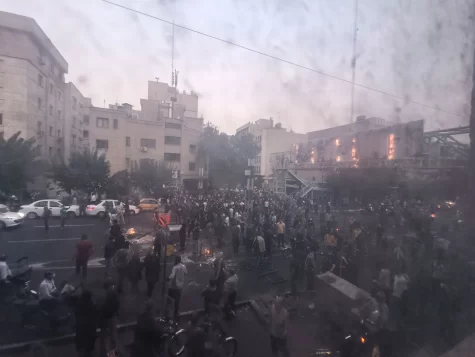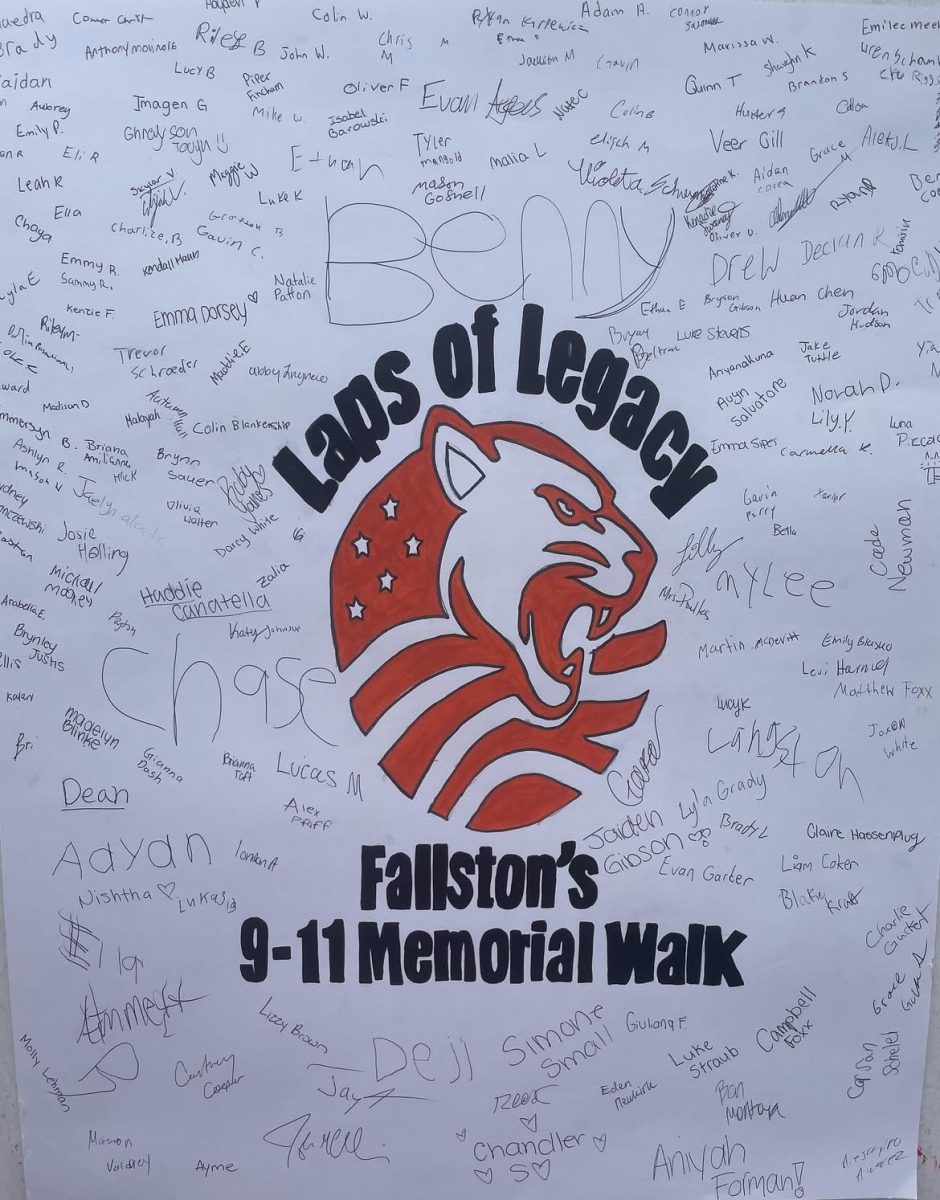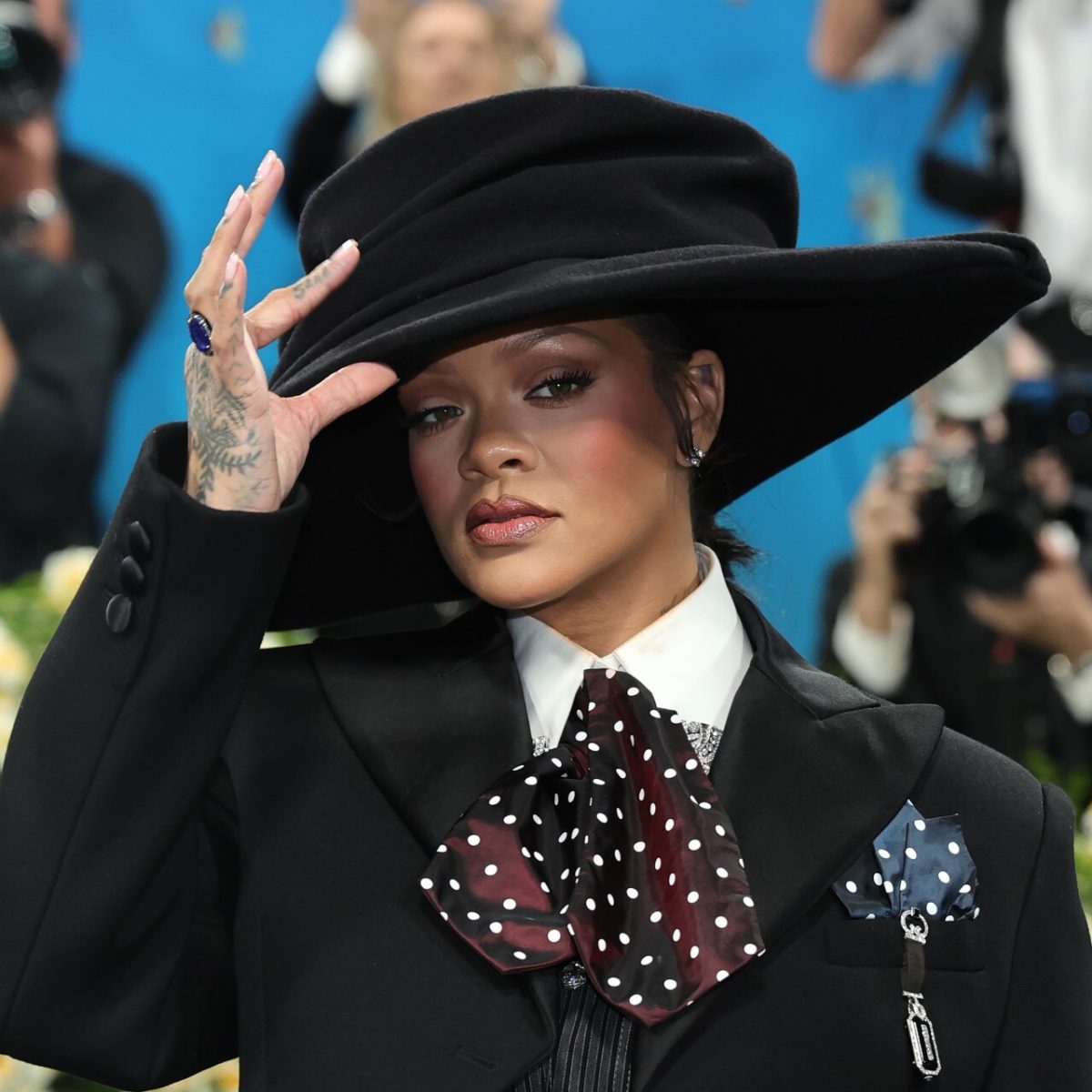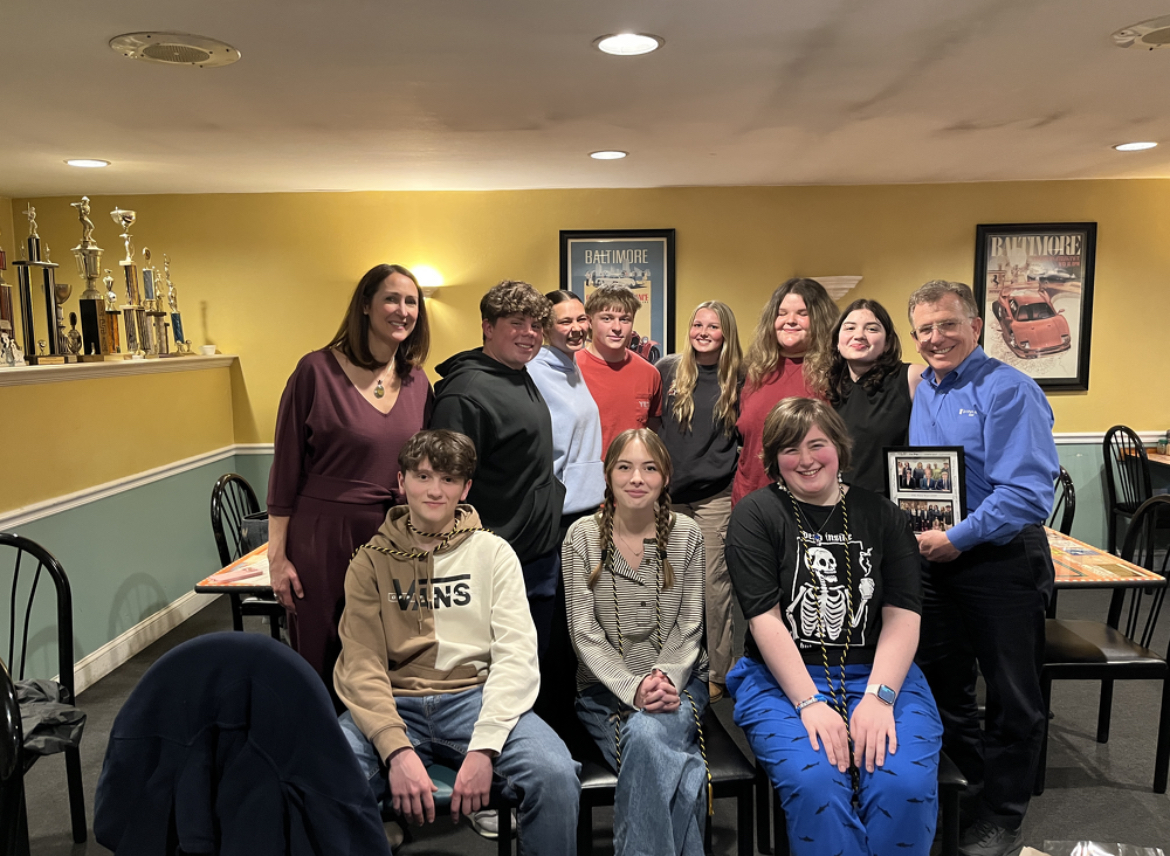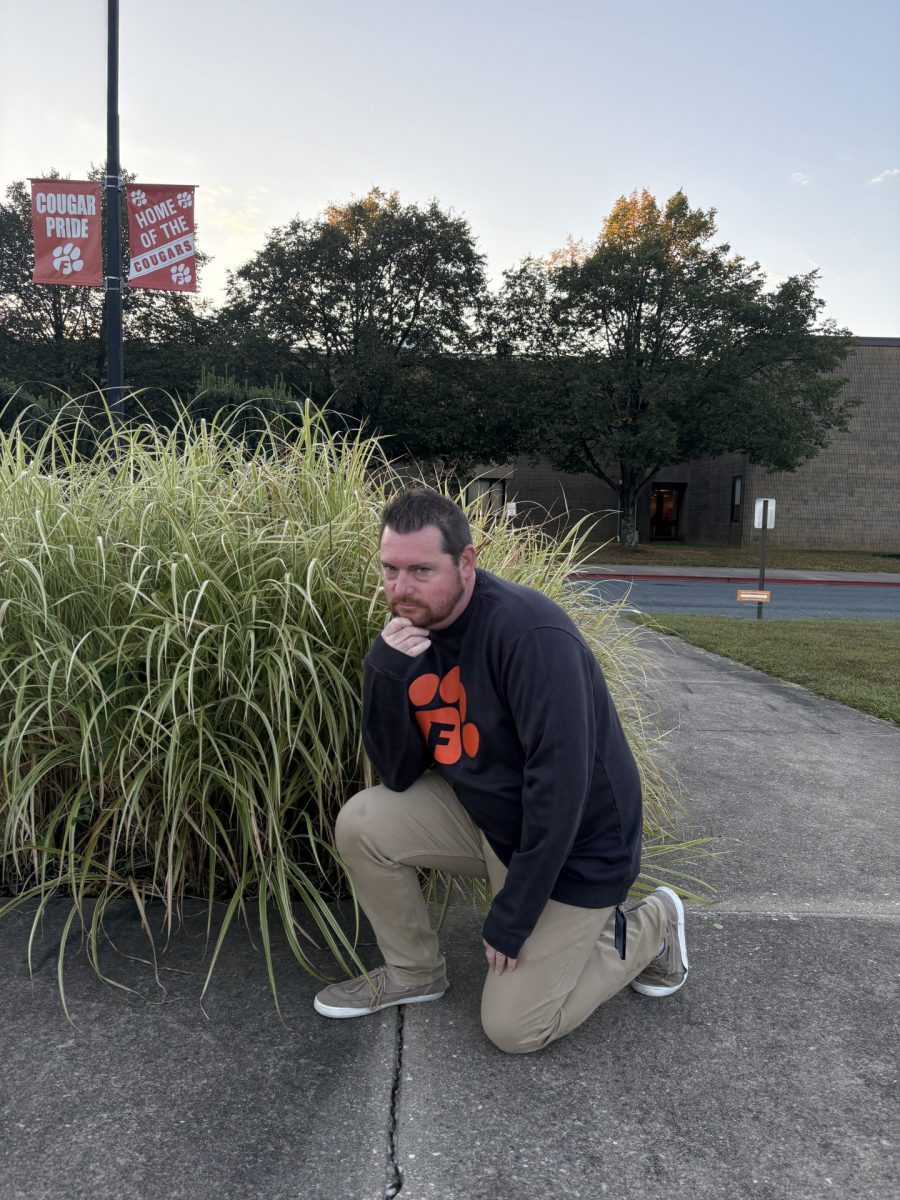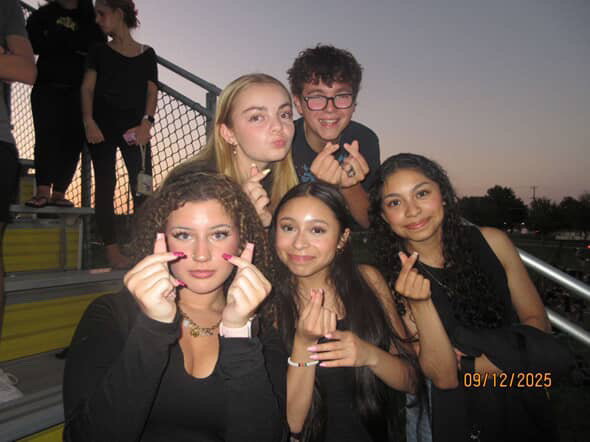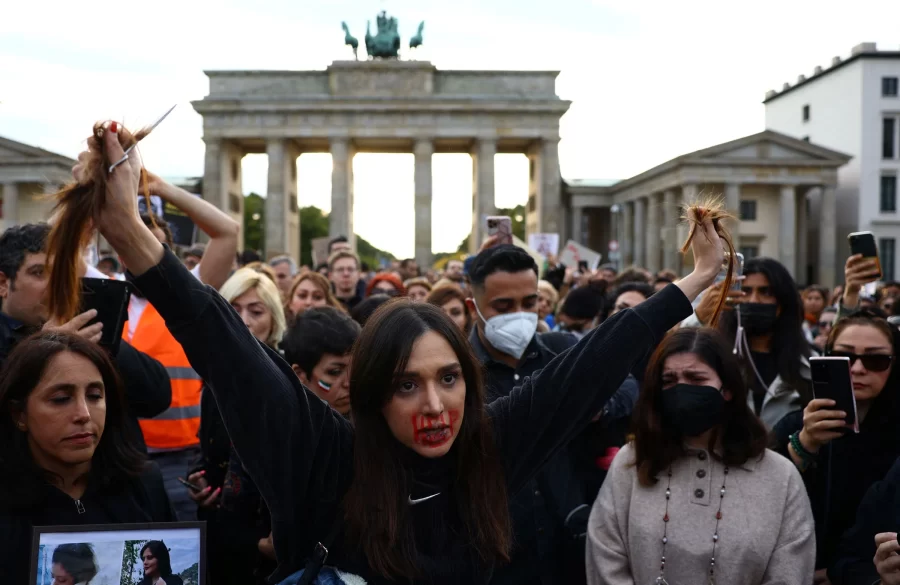Iran’s Call for Change
A demonstrator in Berlin, Germany holding her cut hair in front of a gathered crowd by Brandenburg Gate
November 15, 2022
On Friday, September 16, 2022, Masha Amini – a 22-year-old Iranian female – was killed by the Mortality Police after being arrested and facing numerous aggressive hits to the head. Since Amini’s death, global protests and a social media movement have been sparked.
The Mortality Police are an annex of Iran’s law enforcement and are backed by a unit of the paramilitary force. They abide to regional authorities’ interpretation of the Sharia (Islamic Religious Law).
In Iran, women are forced by dress code to wear a hijab with no hair showing. Masha Amini did break this law, but the overarching problem is the law itself and not the women breaking it. The arrest for breaking these laws often includes verbal, physical, and sexual abuse – even murder.
Amini’s story took the world by storm but not on major western news outlets. Women took to social media to draw attention to the problem. The #MashaAmini surpassed 100 million retweets and reposts on Twitter, Facebook, and Instagram.
Due to their reluctant coverage of Masha Amini’s story, mainstream media was made irrelevant. They didn’t hear about her lynching through CNN, Fox, or New York Times, they heard about it through social media platforms like Twitter, Facebook, and Instagram. In a singular instant, billions learned about the situation in Iran through their phones.
Iran’s government and media remained silent even after US President Joe Biden spoke out and condemned the violence protestors are facing.
In his statement, Biden said, “The United States will… continue holding Iranian officials accountable and supporting the rights of Iranians to protest freely.” He continued, “For decades, Iran’s regime has denied fundamental freedoms to its people and suppressed the aspirations of successive generations through intimidation, coercion, and violence.” Many Iranians saw his speech as a signal of hope.
Josep Borrell, EU foreign policy chief, also commented, saying Europe was considering “all the options at [their] disposal, including restrictive measures, to address the killing of Mahsa Amini and the way Iranian security forces have been responding to the demonstrations.”
Many French celebrities and big-name companies are showing their support to the women in Iran. More than 1,000 French film industry organizations signed a letter in solidarity with Iranian women.
Putting women on pedestals is not equality and supporters who agree are cutting their hair and burning their hijabs in protest and then posting videos of it on TikTok and other social media platforms.
A video titled #Hairforfreedom features over 50 of France’s most famous stars cutting their hair in support. The video opens with an image of Juliette Binoche holding up her hair then cutting it declaring, “For freedom!”
It will be immensely difficult for Iran to overcome the global awareness about the nature of their rule. Amini has become a face people all over the world recognize and relate to. She was wrongfully killed, and her death has called attention to a larger problem that Iranian Women are facing.
